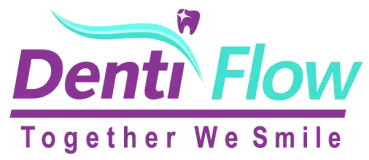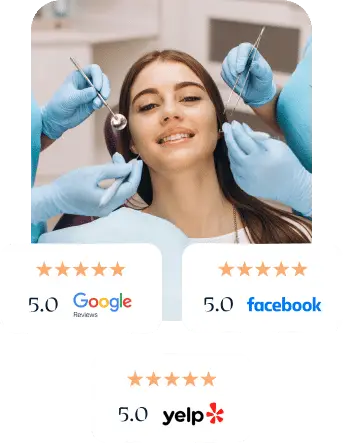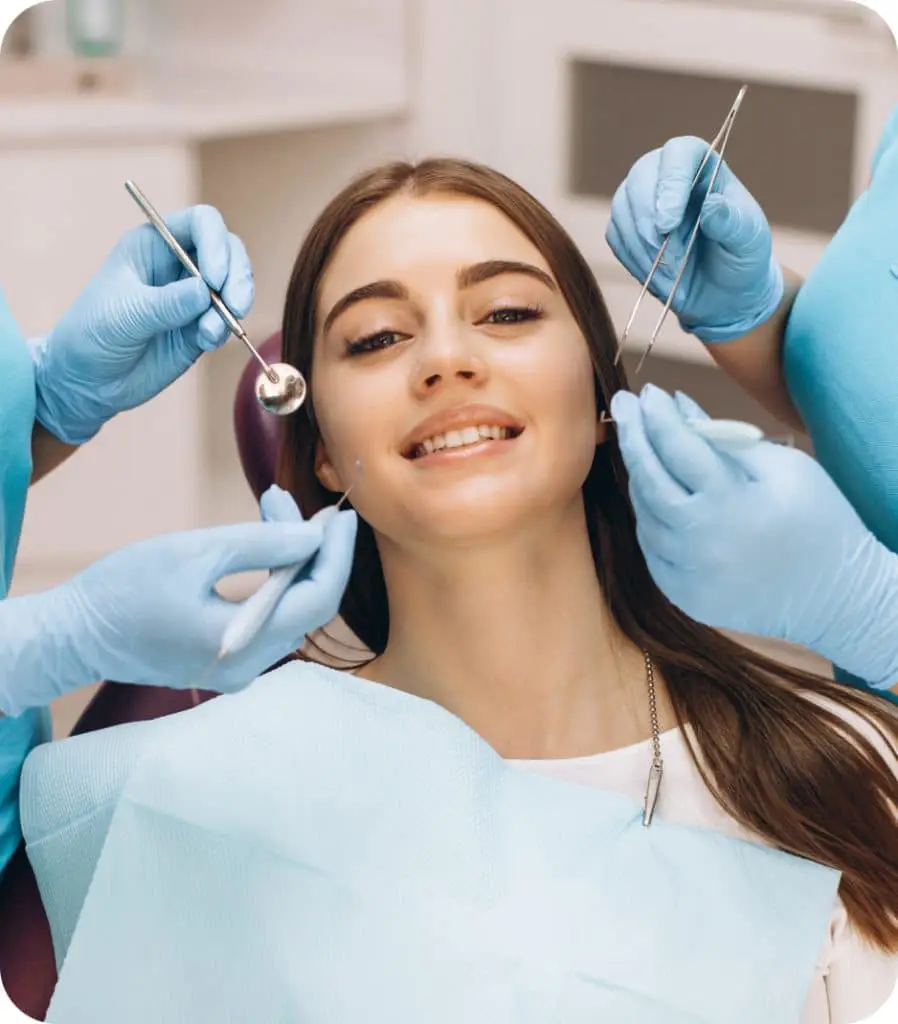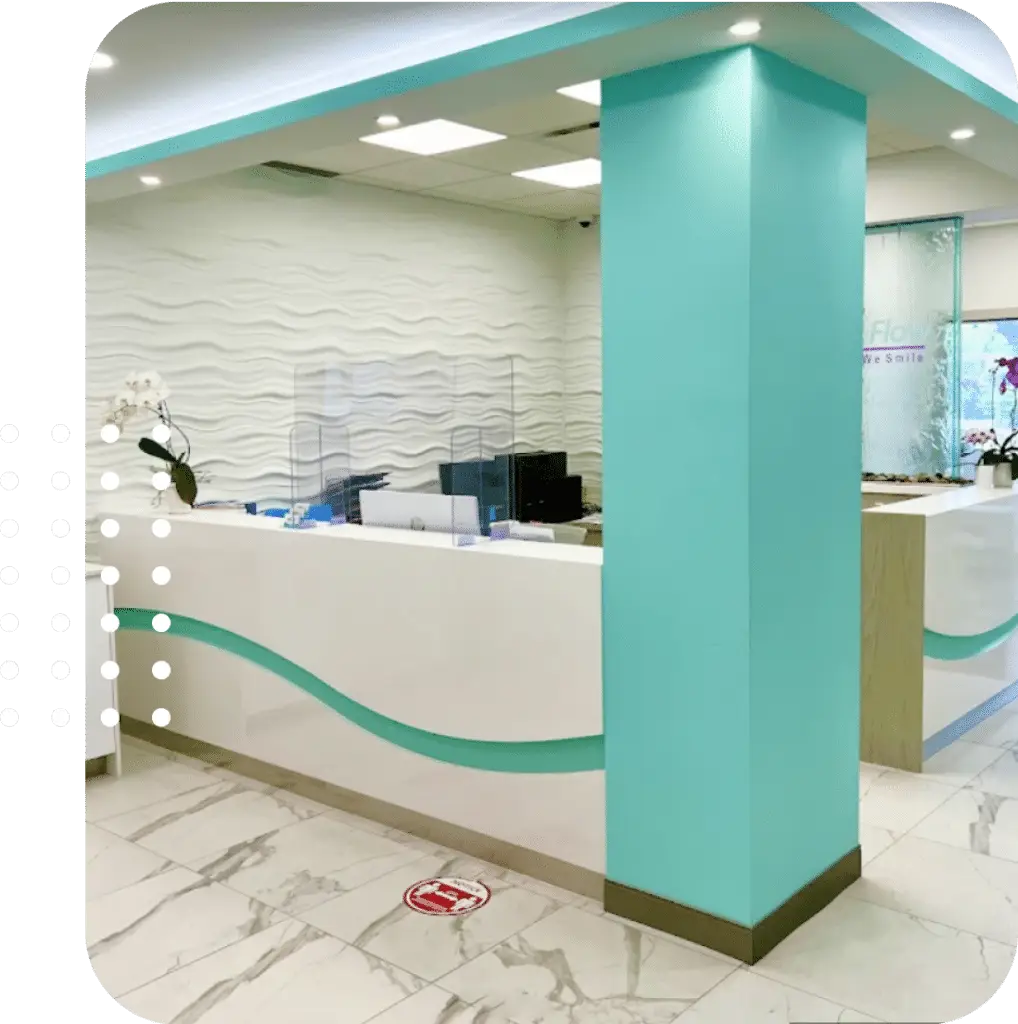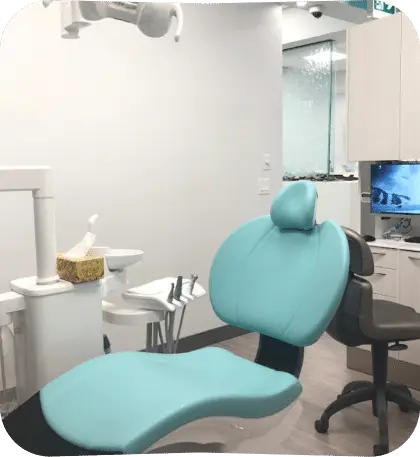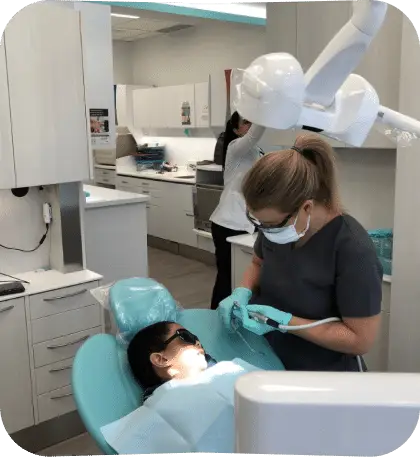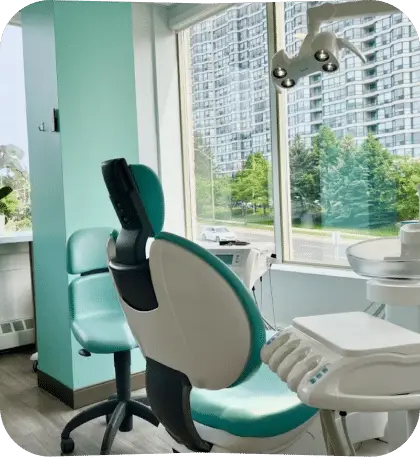Patient Care Instructions
We want patients to receive positive results from every dental procedure, so we strive to ensure they are well-educated and well-equipped to follow our aftercare instructions at home thoroughly.


Don’t Forget to Brush & Floss!
Optimal oral health begins with an at-home oral hygiene routine. It’s always recommended that patients brush their teeth at least twice daily – once in the morning and once in the evening – and floss once per day. Rinsing with mouthwash once a day is another good habit to get into. Not only does it help your breath smell fresh, but it also helps get rid of any leftover bacteria! Even after dental procedures, gentle brushing and flossing is encouraged.
Tooth Extraction Aftercare
Whether you’ve undergone wisdom tooth extraction, had a tooth removed that was infected, cracked/broken, or in preparation for another dental procedure, it’s vital to follow our aftercare instructions to ensure the extraction site heals correctly. Otherwise, it could get infected, cause pain, and cause more dental problems.
Apply Gentle Pressure to Gauze
For the next few hours, you’ll need to keep gauze gently pressed down on the extraction site. Replace it when necessary with a new gauze pad and keep biting down gently until the bleeding stops.
Gently Rinse With Salt Water
The extraction site needs to be kept clean, therefore, we recommend very gently rinsing with warm salt water at least 24 hours after the procedure. Rinse and spit very gently to avoid dislodging the blood clot and avoid using a straw.
Limit Activity
Just relax! That’s right – we order you to relax, at least for the next 24-48 hours. Exercising or being on your feet for too long can impact your healing time. As you lay down, prop your head up against a pillow as laying flat can also impact healing.
Root Canal Aftercare
In the days following your root canal procedure, it’s important to keep the area clean and free of irritants. In order to promote quick healing and move on to the next step of the procedure (if applicable,) you should also do the following:
Take Medication as Prescribed
You may be given medication to keep pain or infection at bay. Even if signs of infection or pain seem to have dispersed, continue taking the medication prescribed to you like normal until directed otherwise. If you’re experiencing discomfort but haven’t been prescribed medication, you can take over-the-counter pain relievers and/or place an ice pack on the side of your face.
Gently Rinse with Salt Water
Just like after a tooth extraction, gently rinsing with warm salt water after a root canal can also be very beneficial. It can reduce swelling, redness, and pain, as well as remove bacteria or food debris. Just remember to very gently swish the water around and spit with minimal force.
Stick to Soft Foods
For a few days following the procedure, it’s best to avoid foods that are hard, sticky, chewy, or too hot/too cold. We can provide you with a list of recommended foods that are nice and soft. After you eat, remember to gently brush and floss even around the surgical site, followed by rinsing gently with warm salt water.
Invisalign® Aftercare Instructions
When you first receive your Invisalign clear aligners, your mouth may feel uncomfortable for the first few days to a week while your teeth get used to the treatment.
Eat a Soft Food Diet
Stick to softer foods until your teeth get used to the treatment. We’ll provide you with a list of recommended foods and drinks that will minimize any discomfort.
Keep Your Aligners in Their Cases
Aligners should be removed when you eat and drink anything but water, therefore, when you remove them they should be replaced in their protective cases. This is the best way to ensure they don’t get damaged or lost.
Tooth Replacement Aftercare
If you’ve received a dental crown, dental bridge, dental implants, veneers, or fillings, your mouth may feel uncomfortable for up to a few days to a week. To ensure proper healing or prevent the tooth replacements from becoming loose/falling out, pay attention to the following:
Chew on the Opposite Side
Just like with other procedures, you should avoid eating hard and sticky foods as this may dislodge the tooth replacement, particularly a dental implant or a temporary tooth replacement. This is why it’s best to chew on the opposite side of the tooth replacement for at least a few days.
Clean Your Gums Thoroughly
While you may have a tooth replacement that can’t get infected, that doesn’t mean you’re exempt from contracting gum disease. Continue to clean the gums around the tooth replacement and floss gently, rinse with warm salt water, and eventually, mouthwash.
Avoid Tobacco
Quitting smoking can be one of the best ways to promote quick healing, especially when you receive dental implants. Tobacco can slow blood flow to the gums and also weaken the immune system, making it harder for your jawbone to accept the artificial tooth.
Contact Our Team with Any Questions or Concerns
Prior to your procedure, we’ll ensure you’re as educated as possible about the procedure and what to expect afterwards, but questions may arise and that’s okay! If you ever have any questions regarding aftercare, please don’t hesitate to contact our team. Additionally, if you have any concerns, call us and we’ll address them promptly.
Services
- Cosmetic Dentistry
- Dental Bridge
- Dental Implants
- Dental Sealants
- Dentist For Seniors
- Dentures
- Digital Exams and Xrays
- Emergency Dentist
- Family Dentist
- Gum Disease
- Invisalign
- Kids Dentist
- Restorative Dentistry
- Root Canals
- Sedation Dentistry
- Sleep Apnea
- Teeth Bonding
- Teeth Cleaning
- Teeth Whitening
- TMJ
- Tongue Tie
- Tooth Crown
- Tooth Extractions
- Tooth Fillings
- Veneers
- Wisdom Teeth Removal
- Cosmetic Dentistry
- Dental Bridge
- Dental Implants
- Dental Sealants
- Dentist For Seniors
- Dentures
- Digital Exams and Xrays
- Emergency Dentist
- Family Dentist
- Gum Disease
- Invisalign
- Kids Dentist
- Restorative Dentistry
- Root Canals
- Sedation Dentistry
- Sleep Apnea
- Teeth Bonding
- Teeth Cleaning
- Teeth Whitening
- TMJ
- Tongue Tie
- Tooth Crown
- Tooth Extractions
- Tooth Fillings
- Veneers
- Wisdom Teeth Removal
You Might Also Like
Dentiflow Dentistry offers a complete range of dental care services. Try us out for yourself to see how we can help you feel more confident with your smile.
Dental Implants
Artificial tooth roots that are surgically placed in the jawbone to support dental prostheses like crowns or dentures.
Invisalign
A popular orthodontic treatment that uses clear aligners to straighten teeth discreetly and gradually.
Family Dentist
A dental professional who provides oral healthcare to patients of all ages, from children to adults.
